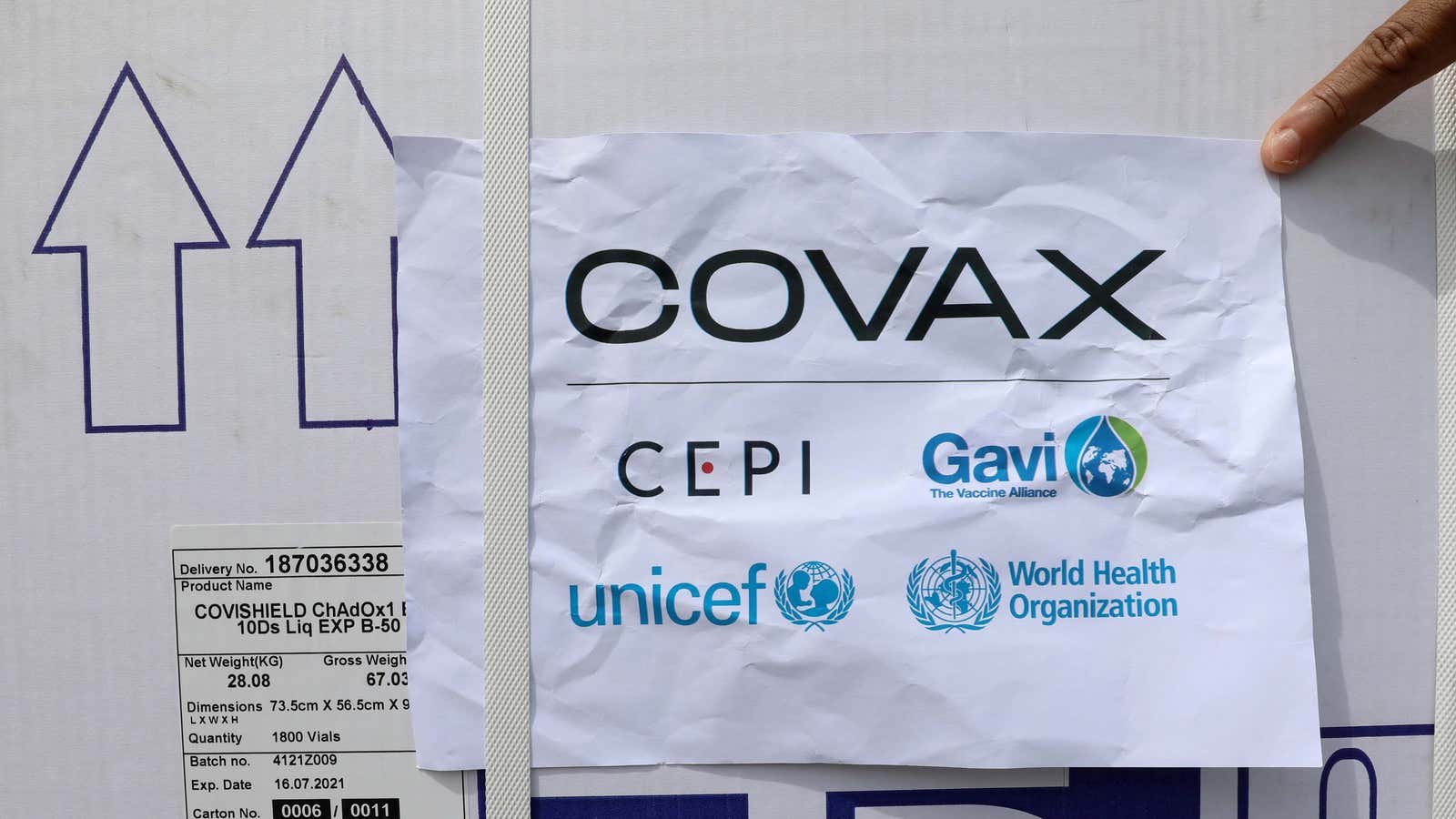Over 3 billion doses of Covid-19 vaccines have been administered in the world so far. Of these, about 1 billion have gone to rich countries, which have a population of about 14% of the world, while mid- and low-income ones have only received leftovers.
Covax, a global coalition that was set up by the World Health Organization and several nonprofits to deliver Covid-19 vaccines to developing countries, has so far delivered less than 90 million doses of the 2 billion it was supposed to deliver by the end of 2021. It seems fair to say that the program has failed so far.
Strive Masiyiwa, the Zimbabwean billionaire founder of Econet Global, knows who is responsible for Covax’s inability to deliver on its promises: Rich countries.
There were never going to be enough vaccines for poor countries
“This was a deliberate global architecture of unfairness,” Masiyiwa, who was tasked to help procure vaccines for the African Union (AU), said on June 23 at a summit on vaccine equity. “Imagine we live in a village, and there is a drought. There is not going to be enough bread, and the richest guys grab the baker and they take control of the production of bread and we all have to go to those guys and have to ask them for a loaf of bread: That is the architecture that is in place.”
Masiyiwa highlights that with Covax’s goal to provide enough vaccines to vaccinate 20% of the population in poor countries, while rich countries had a goal of 70%, global distribution was unequal by design. Although negotiations pushed Covax’s percentage up to 30%, the program has delivered only a fraction of the doses it was supposed to, and there are no doses left to buy anyway.
“The people who bought the vaccines and the people who sold them the vaccines knew that there would be nothing for us,” said Masiyiwa, who met vaccine manufacturers as early as December 2020 to buy vaccines on behalf of the AU. “We had money, we were willing to pay upfront, in cash, we weren’t asking for donations. And they said that all capacity for 2021 [had] been sold,” he said.
Covax, says Masiyiwa, is culpable of the failure. “We were misled. […] We got to December believing the whole world was coming together to purchase vaccines, not knowing that we had been corralled into a little corner, whilst others ran off and secured supplies. That’s what Covax was supposed to do for us,” he said. Masiyiwa says Covax’s decision to procure vaccines primarily from the Serum Institute of India was fraught because the risks attached with sourcing from just one facility were too high.
